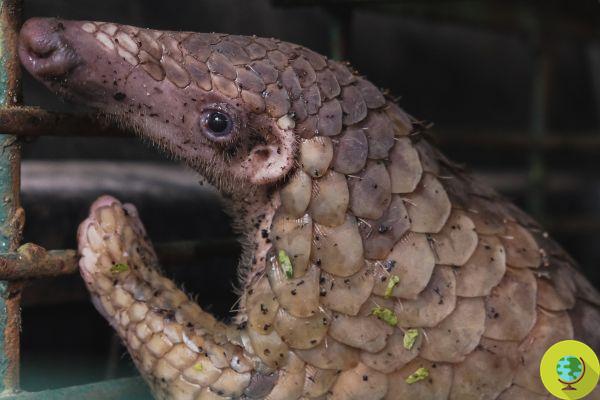
According to the results of a new study, humans have spread many diseases from which they are infected among animals, being responsible for the spillback of viruses in the animal kingdom. And it has not happened infrequently, but much more than one might think
Don't store avocado like this: it's dangerous
A recent study conducted by Georgetown University and published just recently in the scientific journal Ecology Letters has shown that the human being would be responsible innumerable times for the spillback or the "return contagion", transmitting the variants of the virus he got sick from, such as SARS-CoV-2, to other living things such as domestic and wild animals.
Science uses the terminology "spillover" and "spillback" to refer respectively to a jump in species of the pathogens in zoonases and to a reverse contagion.
Although it is still assumed that the Covid-19 epidemic was triggered by an animal species, experts agree on assigning humanity the responsibility of "returning" a wide range of pathogens to nature, having 97 verified examples of human-animal transmission were found. Half of these occurred in captivity, in facilities such as zoos where staff and veterinarians are in close contact with the animals.
The recorded data also showed that more than half of the time - 57 cases out of 97 - the transmission would have occurred from humans to primates. However, this finding is not surprising because according to experts, pathogens seem to “jump” more easily between closely related living beings. However, this spillback also affects other animals such as elephants and birds.
The researchers' intent was precisely to investigate the spillback towards the animal kingdom and how this jeopardizes the well-being and conservation of many species, including humans since what concerns science most is one "secondary spillback“, Where this time it is the animals that transmit to man the pathogens they have received from him, with all the mutations and new variants developed in the course of the work.
Although the risks are real and a very plausible secondary spillback, experts say that the long course of the SARS-CoV-2 outbreak has allowed research to better understand the dynamics of the spillback and that in fact the science would seem more prepared than it is. appears in this regard.
Fonte: Ecology Letters
Follow your Telegram | Instagram | Facebook | TikTok | Youtube
Read also:
- Do we want to avoid a new pandemic? For science too, the first step is to preserve biodiversity
- Wildlife-borne pandemics thrive when nature is destroyed


























